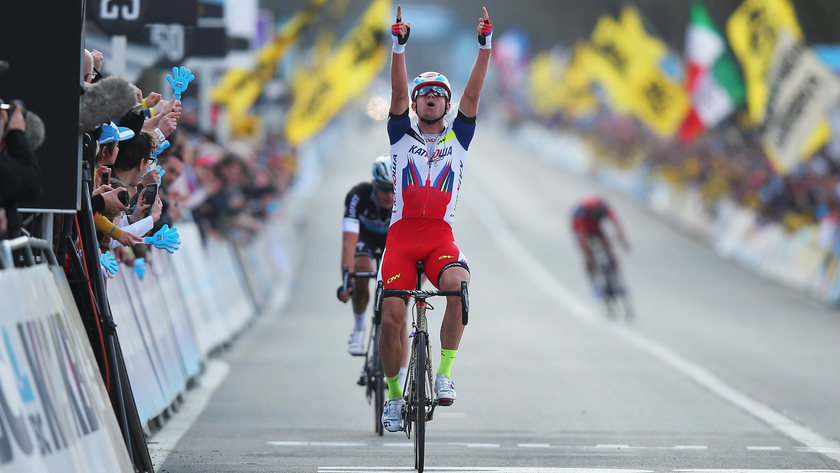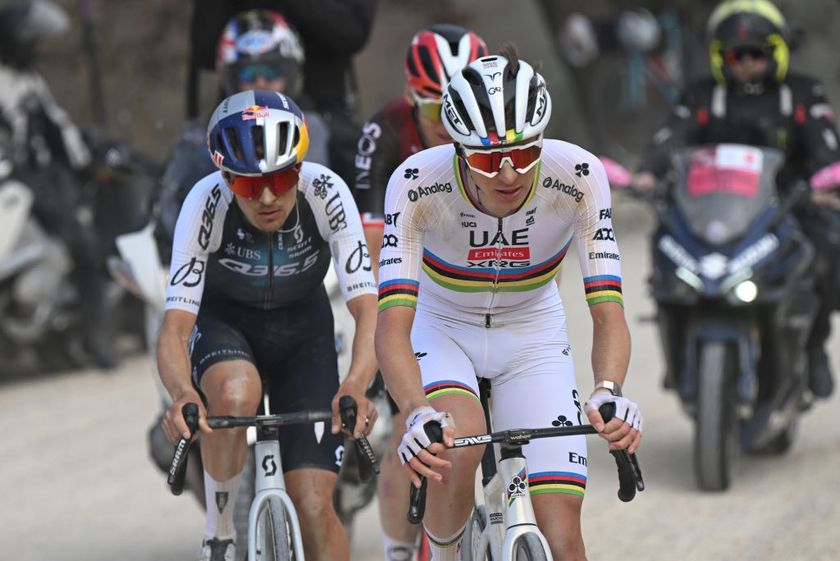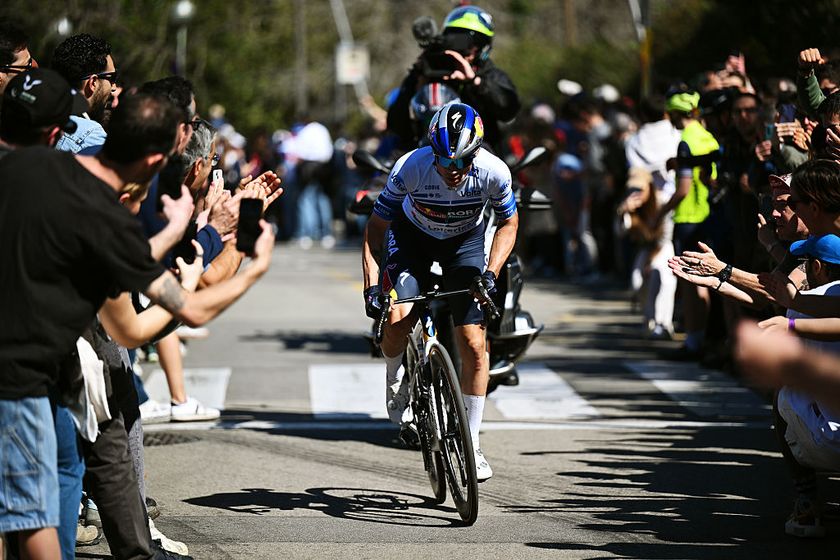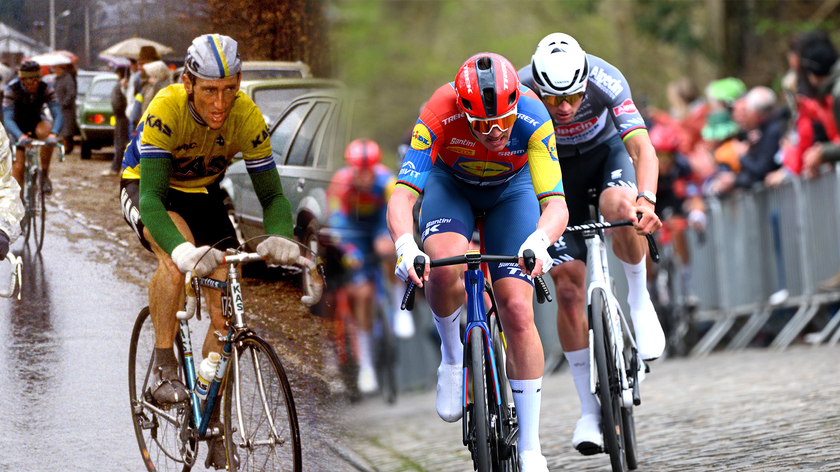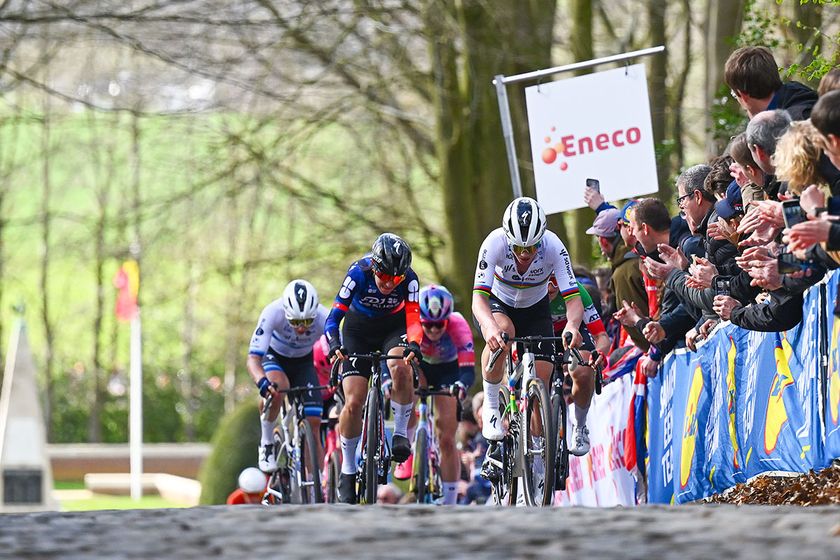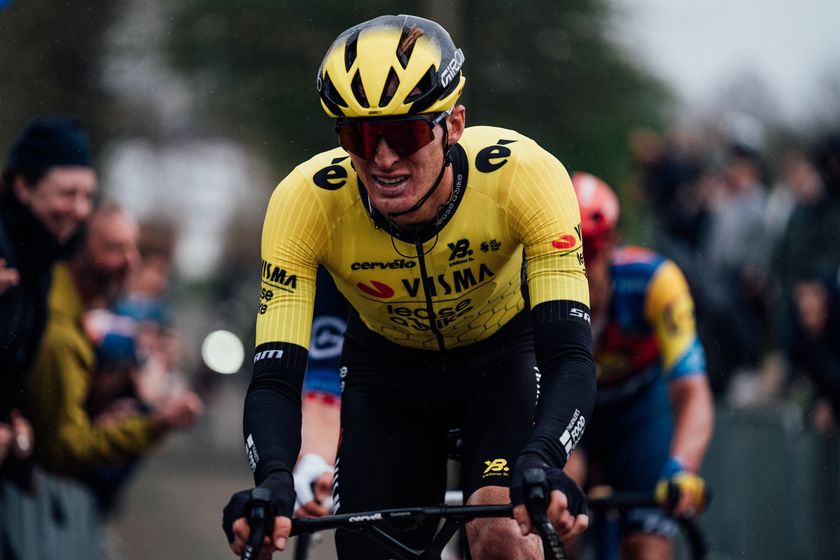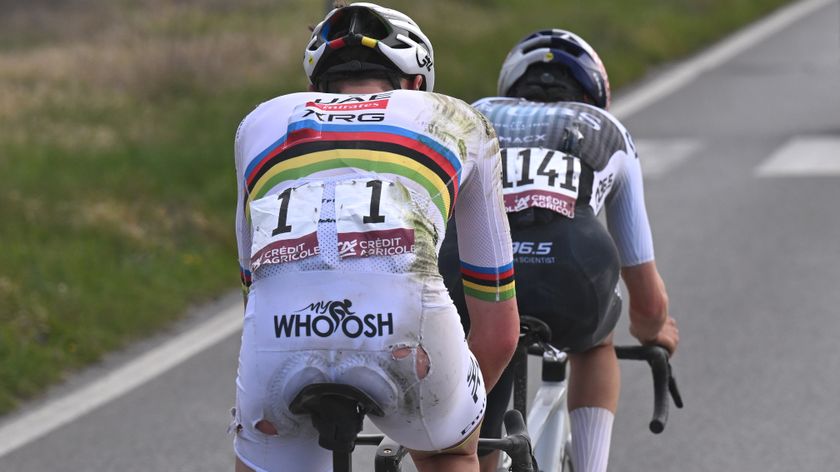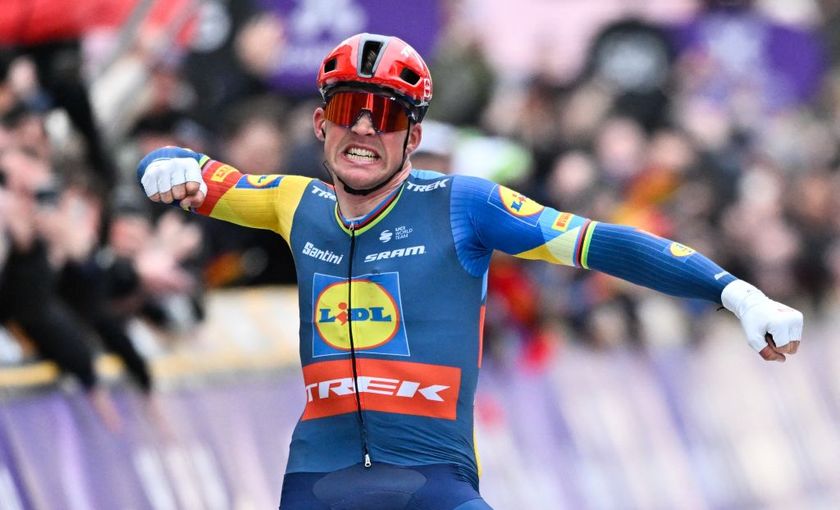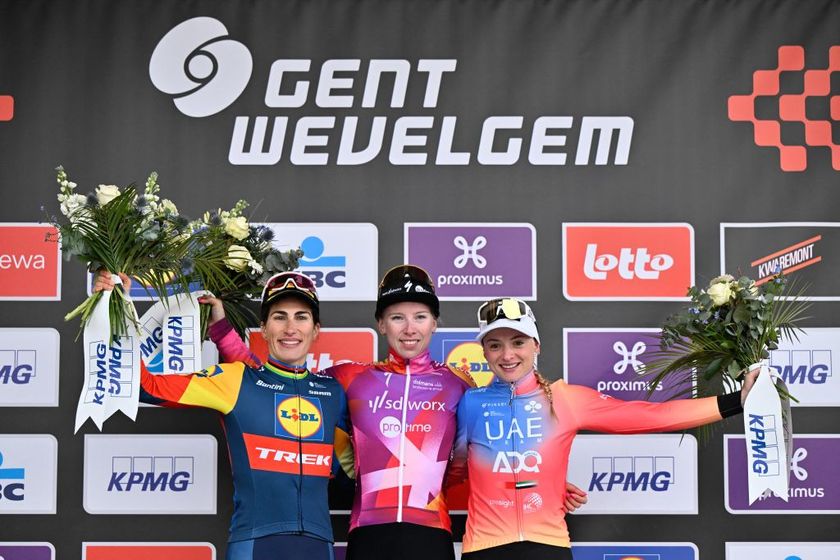The new hope
Tom Danielson is considered one of American cycling's greatest hopes - talented, young, and with a...
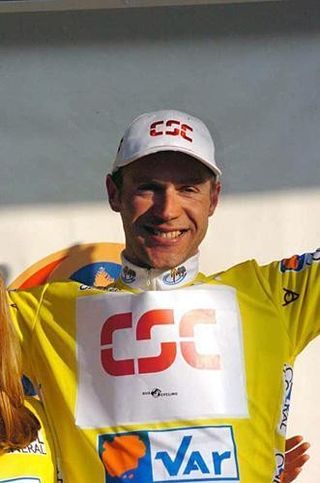
An interview with Tom Danielson, August 31, 2005
Tom Danielson is considered one of American cycling's greatest hopes - talented, young, and with a willingness to learn, the man from Durango is currently at the Vuelta a Espana and eager to perform well. It's here that Cyclingnews' Shane Stokes sat down and spoke with Danielson about injuries, race potential and the year so far.
Tom Danielson has got his Tour of Spain off to a perfect start, finishing a fine fifth in the prologue on Saturday and then showing good climbing legs on the Alto de San Jerónimo on Sunday. After four stages of the race he's lying in 11th place overall and, crucially, building confidence and experience for future Grand Tour campaigns.
The 27 year old Discovery Channel rider has long been considered one of US cycling's brightest talents. While racing for Mercury in 2002, Danielson won the Tour of Qinghai Lake in China and broke Tyler Hamilton's course record by almost a minute when he took the Mount Washington Hill Climb. The following year, he won the Tour de Langkawi in Malaysia, earning considerable praise in the process. More victories followed in the US, in events such as the Pomona Valley Stage Race, the Redlands Bicycle Classic, the Nature Valley Grand Prix, the Cascade Cycling Classic and the Tour de Toona. He also set a course record for the Iron Horse Bicycle Classic.
People were starting to get excited about the young talent from Durango, Colarado, and Fassa Bortolo duly snapped him up, giving the then-Saturn rider his first European contract. However, although the move to Giancarlo Ferretti's silver squad seemed like a dream for the young professional, he was frequently left on the sidelines and never got a chance to show his worth. Winning the Mount Evans hill climb in another new record hinted at what could have been had he been given a real shot.
He was frustrated, but he would get his chance. Lance Armstrong's career was winding down, and the Discovery Channel team were looking for new American talent to nurture. Danielson fitted the bill perfectly. Recognising that he had a lot to learn, the team set about showing him the ropes and gave him a masterclass when they guided him to an excellent victory in the Dodge Tour de Georgia. Danielson finished ahead of established European professionals such as Levi Leipheimer, Floyd Landis and Armstrong himself; it was, he says, his biggest victory and one which gave him a lot of satisfaction.
"It really meant a lot, and for a number of different reasons," he said. "The number one was that the team and Lance and Johan had faith in me and put pressure on my shoulders. It was a very difficult field - you could see that the American guys and the European guys who were there are winning ProTour events this season, and have taken first, sixth and ninth in the Tour. And also the guys who helped them do that.
Get The Leadout Newsletter
The latest race content, interviews, features, reviews and expert buying guides, direct to your inbox!
"So it was a good field, but the most important thing was that the team came up with a very difficult plan for me. Lance helped me a lot and having an idol, a mentor like that to come up with a plan and for me to put the icing on the cake was a huge accomplishment. It taught me that if I believe in myself, I can push my own limits. I hope to achieve that here, next year even more, and hopefully arrive at the top eventually."
Following the Tour de Georgia, Danielson was part of the Discovery Channel team for the Giro d'Italia. However, his knee had been troubling him on and off during the spring, and the joint flared right up during the Italian race, forcing him to retire. He saw several specialists and discovered the cause of a problem to be a muscle imbalance. Several weeks of treatment and strength building put things right, and he made his return to racing with a fine fifth place in the Tour of Austria. Being named as part of Discovery's Vuelta team has given him a chance to test his limits and build to what he hopes is a big future.
"The team has set out some goals for me. The first goal is to finish. That is the most important for my future as a rider. After that, I would really like to do well on some stages and to generally ride strongly here. So firstly it is to finish, then do some stages, then if it all works out without putting too much pressure on myself and the team rides well, I would maybe like to do well overall. But first and foremost, I want to get to Madrid."
"Each year has been a big jump for me," he continued. "But on this team, they are putting me in good hands and I have been able to catch up quickly, whereas before I was so far behind. The biggest thing for me is just having confidence in the peloton and understanding how to conserve energy. I mean, I can do an uphill time trial or something like that without problems, but it's important for me to arrive at the last climb, after 230 kilometres of racing, and have used my energy correctly throughout the whole day so that I can give that effort right at the end.
"I am around the best guys; the Discovery Channel team, and the racers that are here I learn something new from in every race. That goes for everyone - the directors, the staff and the riders. So my learning curve has got a lot steeper and I think I am moving closer to being able to make the most of my potential."
Cyclingnews: How have things been going for you on the Vuelta so far?
Tom Danielson: Everything has been going really well. We have a really strong team here so it has made the race a lot less stressful. Things have been a lot better because of that. I think the overall morale of the team has been really good, so for me it's going well because of that.
CN: You had a very good ride in the prologue with fifth place - twelve seconds off the win. You must have been happy with that?
Tom Danielson: Everything has been going really well. We have a really strong team here so it has made the race a lot less stressful. Things have been a lot better because of that. I think the overall morale of the team has been really good, so for me it's going well because of that.
CN: You had a very good ride in the prologue with fifth place - twelve seconds off the win. You must have been happy with that?
TD: Yes, I was really, really happy with it. I still have a lot to learn in time trials and things like that, but for a short event like that I can’t ask for much better, for now. In the future I'd like to do more, but for this race and for that kind of prologue, I was happy how it turned out.
I liked the hill. When I raced the prologue I actually went too slow on the hill and faster at the end. I was just being too conservative because I thought that the hill would take a lot more out of me than it did. I actually lost time on the hill and gained time on the flat part; normally with my characteristics and strengths I should be able to gain on the hill. But Johan and Dirk saw my whole ride and they have brought a load of things to my attention to correct in the future. I'll just keep working hard and improve.
CN: You also rode well on the climb the next day?
TD: Yes, I saw it on the map and my roommate Michael [Barry] told me that it's one of the most difficult stages because it's a real fight for the climb. The climb itself isn’t so steep and hard, but the pace is really fast and it's important to be near the front. I was really happy to be able to start the climb at the front, which was an accomplishment for me.
I felt very good on the climb, but there is a lot more of the race to come. So I'm going to continue to take it as I've been doing - one day at a time. But on that climb I felt particularly good.
CN: How did you feel your form was coming into this race?
TD: I didn’t know. I hadn’t done a stage race with a climb in it since the Giro. It means that I'm not 100 percent sure what my form is like. I've worked really hard and am excited to do this race. I am not sure how the next three weeks will go for me, but I am certainly going to give it my best shot.
CN: You had a knee problem which took you out of the Giro and sidelined you for a while. You came back in the Tour of Austria with a good ride, though.
TD: Yes, I had just two weeks on the bike when I did Austria. I was fifth there. It’s not bad, but it was just a really good course for me. It had a nice time trial and a mountain top finish. So even though I was a bit heavy and didn’t have any training in my legs, I was still able to do okay there without putting too much intensity in.
I felt good and then I progressed in the Saxon Tour, which had flat stages and crosswinds. My main goal there was to learn. I needed to do everything that I was bad at - main roads, crosswinds, sidewinds, rain, everything. I felt really good there, I think I was in the break four out of the five days. So that was encouraging and also some good training. After that, I did some altitude training and did San Sebastian, then some more hard training, and now I'm here. So we will see what happens.
CN: Do you have targets in this race or are you adapting more of an open-mind approach?
TD: I think the team set out some goals for me. The first goal is to finish. That's most important for my future as a rider. After that, I would really like to do well on some stages and to generally ride strongly here. So firstly it's to finish, then do some stages, then if it all works out without putting too much pressure on myself and the team rides well, I would maybe like to do well overall. But first and foremost, I want to finish.
CN: Are there any stages that look interesting to you, where you think you could do well?
TD: Yes. I've never ridden the Tour of Spain so I don’t know any of these climbs, really. I think I am going to give it my best in the time trials because I want to improve there. As a climber, I think stages six, ten and eleven look really good. And everyone tells me that the Lagos de Covadonga climb is a really good one. So I think I will be trying to go well there. But any time it goes uphill, I'd like to go fast, stay with the front guys if I can.
CN: Was your knee giving you problems throughout the Giro?
TD: Yeah, it was before the Giro. I made a lot of mistakes handling the knee. Obviously I've gone back...I took a month off the bike dealing with the problems I was having. I've been around a lot of people who have helped me address the problem and make sure it doesn’t happen again. But I've learned a lot of things and become a stronger bike rider, overcoming the injury and correcting the muscle imbalance I had. I feel I'm getting more power in the saddle.
CN: Was that imbalance there a long time, do you think?
TD: Yes, but this year was the first time I've had so many races. This is only my second year as a professional. In the past I was able to correct things because I would do a race and then have a month off. But now with 21 stages, the Tour of Georgia with seven stages, the Tour of Pays Basques with five - every other week I have a hard stage race and that sort of thing really makes it flare up. I had a lot of pain in the Tour of Georgia but I kept riding, thinking this is part of cycling. I always had aches and pains and stuff, so I kept going. But in the Giro it got really painful and swollen, so obviously I had to do something about that.
CN: You had a great ride in Georgia...do you consider that as being your biggest success to date?
TD: Yeah. For a number of different reasons. Number one was that the team and Lance and Johan had faith in me and put pressure on my shoulders. It was a very difficult field - you could see that the American guys and the European guys who were there are winning ProTour events and have taken first, sixth and ninth in the Tour. And the guys who helped them do that were there too. So it was a good field, but the most important thing was that the team came up with a very difficult plan for me. Lance helped me a lot and having an idol, a mentor like that to come up with a plan and for me to put the icing on the cake was a huge accomplishment. It taught me that if I believe in myself, I can push my own limits. I hope to achieve that here, next year even more and finally, hopefully arrive at the top.
CN: What comes across sometimes is that you are still finding your confidence, that your head is trying to catch up with your legs and your potential. Is that because you are so new to the pro game?
TD: I think so. You know, each year has been a big jump for me. But especially on this team, they are putting me in good hands and I have been able to catch up quickly. Whereas before I was so far behind. The biggest thing for me is just having confidence in the peloton and understanding how to conserve energy. I mean, I can do an uphill time trial or something like that without problems, but it's important for me to arrive at the last climb, after 230 kilometres of racing, and have used my energy correctly throughout the whole day so that I can give that effort right at the end.
I am around the best guys, the Discovery Channel team and the racers that are here, and I learn something new in every race from the directors, the staff and the riders. So my learning curve has got a lot steeper and I think I'm moving closer to being able to make the most of my potential.
CN: There have been reports that you have been beating some of Lance’s times on the climbs around Girona?
TD: Ahhh...[pauses] it's not important. I have worked really hard and I'm ready for this. I'm going to give it 110 percent. I'm excited to be here with this team, the directors and the riders and I think it is very exciting for me. The last few weeks I have had trouble sleeping because I am so excited to be here. Now I am here, let’s go!
CN: There has been additional stress on the team with the allegations in L’Equipe last week. Has that affected the mood on the team?
TD: I think the team is very upbeat and I think everything is fine. This is not new to the team...part of being on top is getting these uncalled-for shots.
Everything is okay and the morale is very high.
CN: So do you have a designated GC guy on the team for this race?
TD: I think that everyone has the objective to do a good race as a team and not put pressure on any one rider. We'll take what we can and see how everyone’s form is. After the training rides, it seems like everyone’s form is really good, so I think we are going to just play it stage by stage and see what happens.
CN: What is your programme after the Vuelta?
TD: I don’t think I am going to do the Worlds. I don’t know what my programme is yet - I've done a good share of racing before the Vuelta and now I'm focussed 100 percent on the Vuelta. Whatever comes after it comes later. I'm not even thinking about that...it’s all about this race.
CN: Longer term, have you set out goals?
TD: Just to take it day by day and see what happens. I would like to be a Grand Tour racer. I want to learn from the team and mould myself from some of the good guys around me and be the best I can.
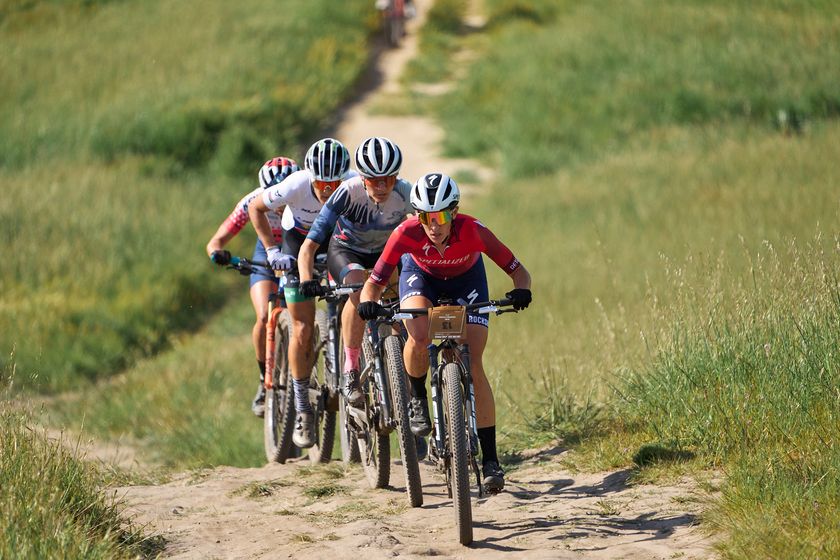
Guidelines to eliminate 'huge impact' of drafting in women's races coming to Life Time Grand Prix series
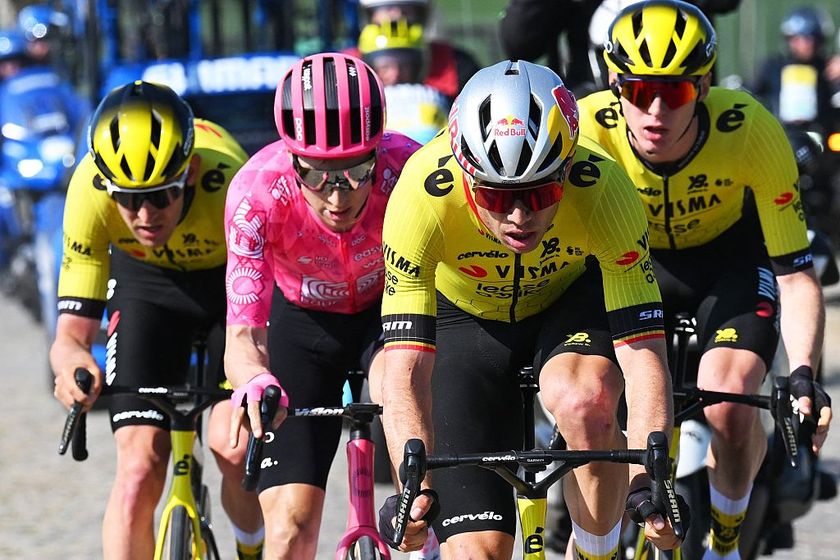
Eyewitness – Tactical blunder turns Wout van Aert and Visma-Lease a Bike's 'perfect' day at the Classics into a nightmare
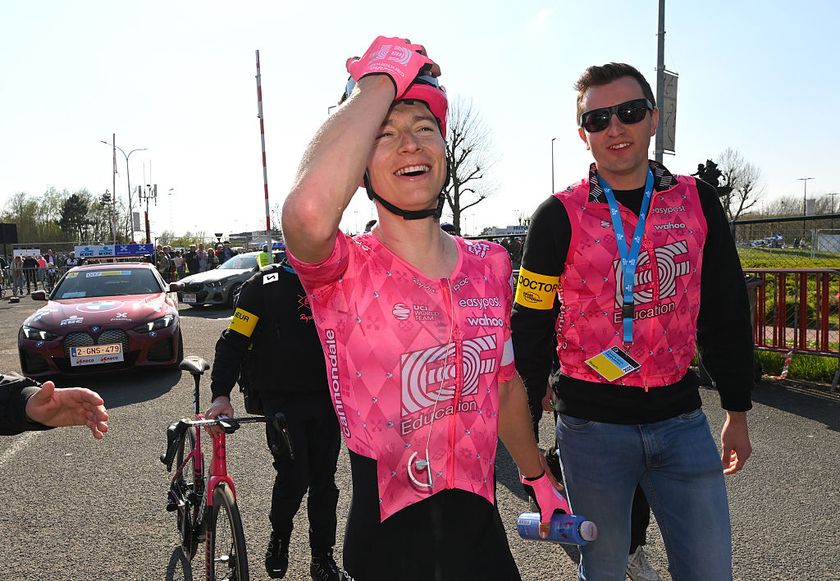
'A ton of weight was lifted off my chest' - Neilson Powless proves his one-day race prowess with Dwars door Vlaanderen win
